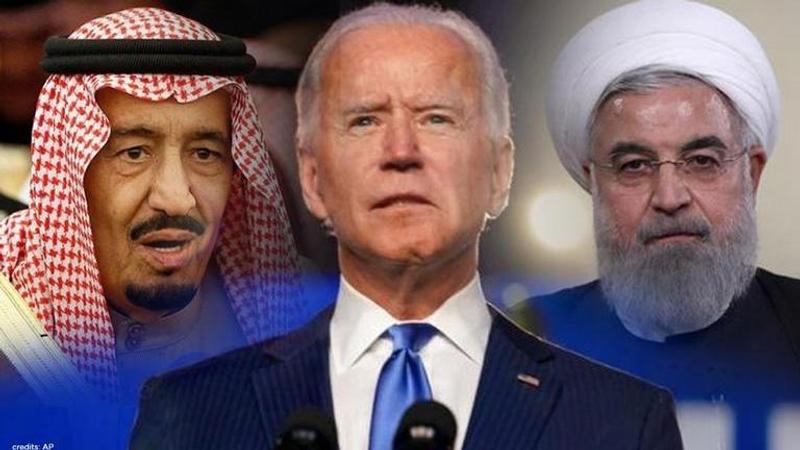Published 11:27 IST, February 1st 2021
Joe Biden's presidency may put an end to years long enmity between Saudi Arabia and Iran
An opportunity for a new beginning between Saudi Arabia and Iran has been presented by Joe Biden’s presidency, which may put an end to the years-long enmity.

An opportunity for a new beginning between Saudi Arabia and Iran has been presented by Joe Biden’s presidency, two leading Saudi and Iranians close to their diplomatic leaderships proposed in an op-ed article in The Guardian. The article, co-written by Abdulaziz Sager, the Saudi Arabian chairman and founder of the Gulf Research Center, and Hossein Mousavian, a former senior Iranian diplomat and now a nuclear specialist based at Princeton University, is a backchannel initiative that has been underway privately for months.
Their discussions may have been approved by serving diplomats in both capitals and may even signal a new willingness on both sides to use the advent of the Biden presidency to explore an end to the years-long enmity between the two countries. In the article, Sager and Mousavian warned of the consequences if Saudi and Iran remain in conflict. They said that the two countries remain at the mercy of a single miscalculation that could turn the protracted cold war between the states’ hot, potentially ushering in disastrous consequences for the entire region.
They two officials also claimed that both countries perceive the other as seeking to dominate in the region, with Riyadh convinced that Iran is trying to encircle the Kingdom with it allied proxy supporters while Tehran views Saudi as in alliance with the US to undermine the Islamic Republic. They said that Riyadh charges Iran with interfering in the internal affairs of sovereign states like Yemen, Syria, Lebanon, Bahrain and Iraq. Tehran, on the other hand, sees Saudi Arabia doing the same in the aforementioned countries.
Iran-Saudi Arabia relations
Sager and Mousavian urged the two sides to agree a set of principles around non-interference, the inviolability of national boundaries, rejection of violence, respecting the Vienna convention on diplomatic relations, respect for religious minorities and abandonment of the use of proxy forces to advance national interests. The authors also stressed postponing de-escalation would be a “grave mistake” as the region has proved time and again that on the rare occasion that opportunities for constructive dialogue present themselves, they must be grasped swiftly before they vanish. Further, both of them admitted that the task may seem impossible, but claim that both sides have taken steps to show they are willing to avoid an inescapable zero-sum confrontation.
Amid the tensions between the two nations, it is worth noting that Iranian foreign minister, Javad Zarif has hinted at a new approach. In an interview with Iranian newspaper Etemaad, Javad accepted that opportunities with Riyadh had been missed. But he added that it was imperative that Iran was the pioneer in this enterprise. Javad said that Iran has no territorial claim or interest in accessing the natural resources of other regional countries, therefore, it is Iran that can initiate this effort from a position of wealth. “We shouldn’t wait for others,” he added.
Updated 11:27 IST, February 1st 2021




